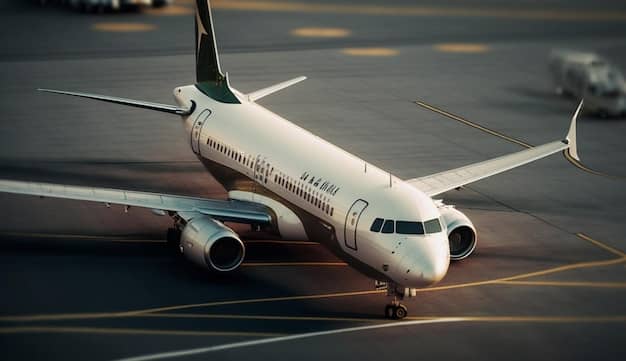As the world continues to recover from the disruptions of the past few years, the travel industry is evolving rapidly in response to new technologies, changing consumer behavior, and environmental concerns. In 2025, the global travel landscape is expected to look vastly different, with sustainability, personalisation, and technology at the forefront. Here’s an in-depth look at what the future of travel holds, supported by emerging trends and key statistics.
The Future of Travel
The Rise of Sustainable Travel
Sustainability is no longer optional in the travel industry—it’s a necessity. According to a 2025 report by the World Travel & Tourism Council (WTTC), 81% of travelers globally now prioritise eco-friendly travel options. Airlines, hotels, and tourism operators are increasingly adopting green practices to cater to this demand.

Carbon-Neutral Flights: Airlines are investing heavily in sustainable aviation fuel (SAF), with projections that SAF will power 10% of global flights by 2025.
Eco-Friendly Accommodations: The demand for green-certified hotels has grown by 35% annually, with many properties now offering solar power, water recycling systems, and locally sourced products.
Slow Travel: A significant trend is “slow travel,” which encourages longer stays in fewer destinations to reduce the carbon footprint.
Technology-Driven Travel Experiences
Technology is reshaping every aspect of the travel experience, from booking to exploration. By 2025, digital transformation is expected to add $305 billion to the global travel economy.
AI and Personalization: Artificial Intelligence (AI) is revolutionizing how travelers plan trips. Platforms powered by AI analyze user preferences to create highly personalized itineraries, predicting destinations and experiences that match individual tastes.

Biometric Identification: Airports and borders are adopting biometric systems for seamless and secure travel. According to the International Air Transport Association (IATA), 75% of airports will implement biometric check-ins by 2025, reducing waiting times by 50%.
Virtual Reality (VR) Tours: Travelers can now preview destinations and accommodations through immersive VR experiences before booking, helping them make informed decisions.
Growth in Remote Work and Digital Nomadism
The rise of remote work is driving new travel patterns. With 35% of the global workforce working remotely at least part-time, many are blending work with leisure through “workcations.”
Digital Nomad Visas: Over 50 countries now offer special visas for remote workers, allowing them to stay longer while contributing to local economies.

Co-Working Resorts: Hotels and resorts are redesigning spaces to include high-speed internet, private workstations, and networking events for professionals.
Economic Impact: The remote work travel market is projected to generate $500 billion annually by 2025.
Space Tourism: A New Frontier in the Future of Travel
Space tourism is no longer a concept of science fiction. Companies like SpaceX, Blue Origin, and Virgin Galactic are making suborbital flights more accessible.

Projected Growth: The space tourism market is estimated to grow to $3 billion by 2025, with ticket prices gradually becoming more affordable for wealthy travelers.
Consumer Interest: A 2025 survey by UBS shows that 20% of high-income travelers are interested in booking a space flight within the next decade.
Health and Safety as a Priority
The pandemic has permanently changed how people view health and safety while traveling.

- Travel Insurance: More than 70% of travelers now purchase comprehensive insurance that includes health coverage, a significant increase from 52% in 2019.
- Touchless Technology: Hotels and airlines are doubling down on touchless services, including keyless room entry, mobile check-ins, and digital menus.
- Medical Tourism: This niche is expected to grow by 10% annually, with countries like India, Thailand, and Mexico leading as top destinations for affordable healthcare and wellness retreats.
Emerging Travel Markets
While traditional destinations like Europe and the United States remain popular, emerging markets are gaining traction.


- Africa: Countries like Rwanda, Kenya, and Ghana are becoming sought-after destinations for eco-tourism and cultural exploration. The African tourism market is projected to grow by 7.5% annually through 2025.
- Asia-Pacific: With the reopening of borders, countries such as Vietnam and Indonesia are witnessing a surge in international arrivals, expected to exceed pre-pandemic levels by 15%.
- Latin America: Destinations like Costa Rica and Colombia are capitalizing on their biodiversity and adventure tourism offerings.
Statistics at a Glance
Global Tourism Revenue: Expected to reach $8.6 trillion in 2025, surpassing the pre-pandemic peak of $8.4 trillion in 2019 (WTTC).
Air Travel: Passenger numbers are forecasted to grow by 47%, with a focus on regional travel and low-cost carriers (IATA).

Online Bookings: Digital bookings will account for 78% of all travel reservations, up from 66% in 2020.
Sustainable Tourism: Eco-conscious travelers are willing to pay up to 20% more for sustainable options, according to Booking.com’s 2025 Sustainable Travel Report.
